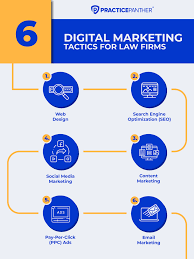
Unlocking Success: The Essentials of Legal Web Marketing in the UK
The Power of Legal Web Marketing
In today’s digital age, having a strong online presence is crucial for businesses in all industries, including the legal sector. Legal web marketing has become an essential tool for law firms to reach a wider audience, build credibility, and attract new clients.
Benefits of Legal Web Marketing
Increased Visibility: With the majority of people turning to the internet to search for legal services, having a well-optimised website can significantly increase your firm’s visibility online.
Targeted Reach: Legal web marketing allows you to target specific demographics and geographic areas, ensuring that your message reaches the right audience.
Credibility and Trust: A professional website with valuable content can establish your firm as a credible and trustworthy authority in your field.
Key Strategies for Legal Web Marketing
Search Engine Optimization (SEO): Optimising your website for search engines can help improve its ranking in search results, making it easier for potential clients to find you online.
Content Marketing: Creating high-quality and relevant content such as blog posts, articles, and case studies can engage users and demonstrate your expertise in the legal field.
Social Media Marketing: Leveraging social media platforms to share updates, engage with followers, and promote your services can help broaden your reach and connect with potential clients.
The Future of Legal Web Marketing
As technology continues to evolve, the landscape of legal web marketing will also change. Law firms that embrace innovative digital marketing strategies and adapt to new trends will have a competitive edge in attracting clients and growing their business.
Essential FAQs on Legal Web Marketing for Law Firms
- Is Digital Marketing legal in India?
- How important is a website for a law firm?
- What does Web marketing do?
- What is CRM in law firms use?
Is Digital Marketing legal in India?
In India, digital marketing is a legal and widely used practice for promoting businesses, including law firms. As long as digital marketing activities comply with the relevant laws and regulations, such as data protection laws and advertising standards, they are considered legal. Many law firms in India leverage digital marketing strategies to enhance their online presence, reach a broader audience, and attract potential clients effectively. By following ethical guidelines and staying informed about the legal requirements, law firms can harness the power of digital marketing to grow their practice in compliance with Indian laws.
How important is a website for a law firm?
Having a website is paramount for any law firm in today’s digital age. A well-designed and informative website serves as the online face of the firm, acting as a crucial tool for establishing credibility, showcasing expertise, and attracting potential clients. It not only increases the firm’s visibility but also provides a platform to communicate services, share valuable content, and engage with visitors. A professional website instils trust in clients and sets the tone for the firm’s reputation in the competitive legal industry. In essence, a website is an indispensable asset for a law firm looking to thrive in the digital landscape and stay ahead of the curve in legal web marketing.
What does Web marketing do?
Web marketing plays a crucial role in the legal sector by leveraging online channels to promote law firms, attract potential clients, and establish a strong digital presence. It encompasses various strategies such as search engine optimization (SEO), content marketing, pay-per-click advertising (PPC), and social media management to enhance visibility, drive traffic to websites, and ultimately generate leads. Web marketing helps law firms effectively communicate their expertise, build credibility, and engage with their target audience in a competitive online landscape. By utilising web marketing strategies tailored to the legal industry, firms can showcase their unique value proposition and differentiate themselves from competitors, ultimately leading to increased client acquisition and business growth.
What is CRM in law firms use?
Customer Relationship Management (CRM) in law firms refers to the strategic approach taken by legal professionals to manage and nurture relationships with clients and potential clients. CRM systems enable law firms to centralise client information, track interactions, and streamline communication processes. By utilising CRM in law firms, legal professionals can enhance client satisfaction, improve retention rates, and ultimately drive business growth. Effective CRM implementation allows for personalised client interactions, efficient case management, and data-driven decision-making to better meet the needs of clients and enhance overall firm performance.

